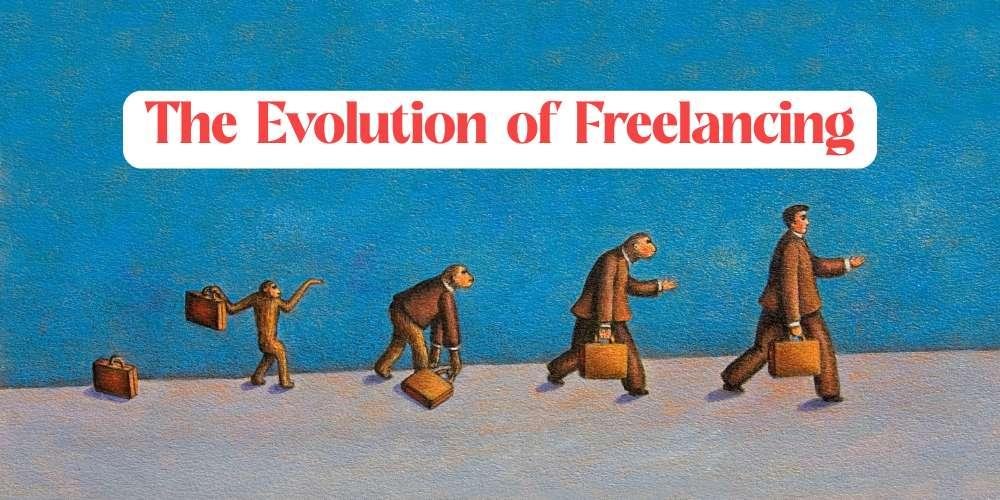
The Evolution of Freelancing: What’s New in 2025
Introduction: The New Age of Freelancing
Welcome to 2025 — the era where freelancing is no longer just a side hustle but a serious, global industry. The freelance economy has evolved into an unstoppable force that reshapes how businesses operate and how people work. What used to be a fallback option is now a first choice for millions across the globe. So, what’s new? Let’s dive in and find out.
The Rise of the AI-Powered Freelancer
How AI Tools Have Redefined the Game
Remember when AI was just a buzzword? Those days are long gone. In 2025, AI has become the secret weapon in every freelancer’s toolkit. From automating routine tasks (like data entry and basic design) to making sophisticated recommendations for coding or marketing campaigns, AI is no longer an accessory — it’s an essential part of freelance work.
The Human Touch vs AI: What Clients Prefer
While AI can write, design, and crunch numbers, it still struggles to match the nuance and creativity that only humans can deliver. Clients are increasingly opting for freelancers who can collaborate with AI tools, combining precision and efficiency with human flair.
The Expanding Gig Economy
The Impact of Remote Work Culture
The pandemic era reshaped traditional office setups, making remote work mainstream. By 2025, this trend has matured, making freelancing an attractive option for talent across borders. The world is one giant talent pool, and businesses can hire freelancers from anywhere.
Niche Specialists vs Generalists: The New Battleground
A few years ago, generalist freelancers could survive by offering a mix of services. Today, it’s the specialists — writers focusing exclusively on SaaS, developers mastering Web3, and marketers excelling in TikTok ads — who dominate the market. The more niche your expertise, the higher your earning potential.
New Skills in Demand
Video Creation and Editing
Short-form video has conquered the internet. By 2025, every brand needs captivating video content, making editors and animators highly sought-after.
AI Prompt Engineering
Have you heard about AI prompt engineering? It’s like teaching a robot to speak poetry. Skilled prompt engineers who can tease out the best results from AI platforms are charging premium rates.
Sustainable and Ethical Freelancing
With increasing global awareness about climate change and ethical work practices, businesses want freelancers aligned with these values — making eco-friendly design, fair pricing, and culturally sensitive marketing highly marketable.
New Freelancing Models and Marketplaces
Subscription Models
More and more freelancers are offering subscription services — like a monthly newsletter, design retainer, or content package. This approach gives freelancers predictable income and fosters long-term relationships.
AI-Driven Job Matching
Platforms like Upwork and Fiverr have embraced AI for smarter job matching. Freelancers now get tailored project recommendations based on their profile, making it faster and more accurate.
Decentralized Platforms and Smart Contracts
Blockchain and smart contract platforms are gaining ground in the freelance marketplace. These platforms enable transparent payments, automated dispute resolution, and trustless collaboration between parties across borders.
Challenges Freelancers Face in 2025
Increased Competition
With low barriers to entry, freelancing platforms have become crowded. As a result, standing out has become an art form that blends quality, pricing, and personal branding.
Managing Client Expectations
Modern clients expect quick turnarounds, seamless communication, and quality work. The pressure is higher, making project and time management vital for long-term success.
Tips for Thriving as a Freelancer in 2025
Invest in Skills and Branding
To stay relevant, freelancers must commit to lifelong learning. Investing in advanced certifications and mastering trending tools (like AI platforms) can be a game changer. Equally important is cultivating a personal brand that showcases expertise and trust.
Build Strong Client Relationships
Clients value trust and reliability. Stay in regular touch, seek feedback, and understand their evolving needs. This approach can turn one-off gigs into long-term collaborations.
Conclusion: The Future is Bright for Freelancers
The freelance world of 2025 is dynamic, competitive, and ripe with opportunity. It’s a space where talent and technology unite, allowing entrepreneurs and creatives to carve niches that didn’t exist a few years ago. As long as you adapt, evolve, and stay true to your craft, the future of freelancing is not just bright — it’s blazing.
Frequently Asked Questions (FAQs)
Q1: What are the best freelance platforms in 2025?
A1: Upwork, Fiverr, Contra, and Braintrust lead the pack, complemented by niche platforms focusing on industries like SaaS, video editing, or Web3.
Q2: Is AI a threat to freelancers?
A2: Not necessarily. AI is a tool that can save time and boost productivity. The key is learning to work alongside it and focusing on tasks that require a human touch.
Q3: What skills should I learn for freelancing in 2025?
A3: AI prompt engineering, video editing, UX/UI design, and data storytelling are in high demand.
Q4: Will freelancing become more competitive?
A4: Absolutely. As barriers to entry drop, standing out will require highly specialized skills and a strong personal brand.
Q5: How can I maintain long-term client relationships?
A5: By focusing on reliability, excellent communication, consistent quality, and aligning with your client’s evolving needs.
